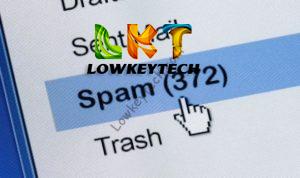Last Updated on October 3, 2019 by Larious
 Emails are meant for relevant messages. Hence, all messages are expected to be in the inbox for easy access. However, this is not always the case. When you keep receiving unsolicited or anonymous messages from computer generated sources or mail chimp, it’s a sign that you’ve been spammed.
Emails are meant for relevant messages. Hence, all messages are expected to be in the inbox for easy access. However, this is not always the case. When you keep receiving unsolicited or anonymous messages from computer generated sources or mail chimp, it’s a sign that you’ve been spammed.
While many people who receive bulk messages usually ignore or just delete them, there are other ways to keep them at bay permanently. Jovago.com, a leading online booking portal reveals some mistakes that gives spam access to your email.
Unsubscribing emails.
When you receive an unwanted mail, your first natural action would be to scroll down and look for the unsubscribe button. Clicking on it will take you to a website asking you why you want to unsubscribe and then a floodgate of spam message will hit your inbox. If you don’t know the source of the mail don’t unsubscribe from it. It is advisable you just delete the message and report it as spam.
Using CC
While sending bulk mails, it is helpful to use CC instead of BCC. This is because you don’t really know the individuals receiving the mails.
If you use the CC column, everyone will see who the mail is sent to. This is not same for BCC. In addition, when you reply a mail sent to so many people that are unfamiliar to you, use reply and not reply all. Doing otherwise can expose you to spam mails.
Replying to Spam Mails.
The rule of thumb should be “If you don’t know the source of the mail don’t open it and don’t reply. The source may be computer generated and replying can be an exercise in futility. An added reason why you shouldn’t open such a mail is that it may be disguise to use a virus to infect your device.
Using similar username as your email address.
Using the same username as your email when filling forms online can make it easy for spammers to find you. So be careful with the sites you drop your email as some websites usually sell emails to spammers without permission from the users.
Avoid Unprotected Websites
Your browser or antivirus should prompt you whether the site is protected or not. This is important because it will ensure that spammers and hackers don’t ‘steal’ your email.
GUEST POST: BY



